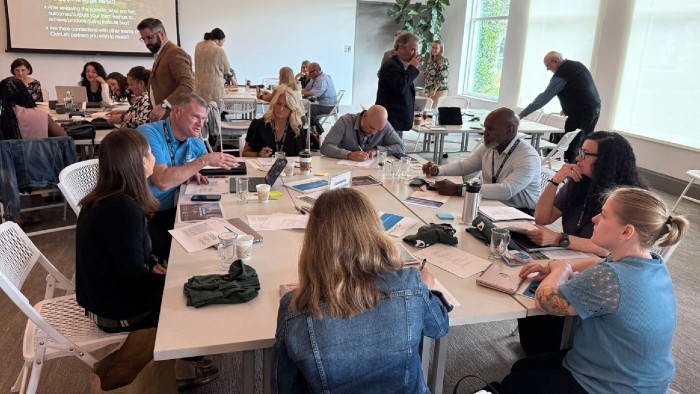
Ascendium Announces Grant Partners for Building Evidence to Increase Rural Learner Success
Ascendium is pleased to announce the grant partners selected to receive funding through our Building Evidence to Increase Rural Learner Success initiative.
Building Evidence to Increase Rural Learner Success focuses on generating insights about strategies that can improve postsecondary education and workforce training opportunities and outcomes for rural learners from low-income backgrounds. It's our hope that the research generated by partners through this initiative will inform postsecondary education leaders, policymakers, state and federal agencies and others with an interest in best supporting rural learners.
The selected research teams will each receive grants of up to $500,000 over three years. With support from American Institutes of Research (AIR), they will also engage in convenings and virtual events to share learnings as they implement their projects.
- Digital Promise Global will explore the impact of a state-funded training and wage-based incentive program designed to create living-wage career paths for early childhood educators in rural communities.
- Georgia State University Research Foundation will evaluate the impact of a statewide online instruction initiative on the enrollment, completion and employment outcomes of rural learners.
- North Carolina State University will investigate the effectiveness of its statewide Rural College Leaders Program in contributing to student success reforms.
- University of Washington will explore whether rural learners from low-income backgrounds benefit from postsecondary mentorship programs and identify best practices for implementing mentorship programs in rural contexts.
- Western Illinois University will investigate whether its Paraprofessional Teacher Education Option program reduces barriers for non-traditional, rural learners from low-income backgrounds to earn a bachelor's degree in education and teacher licensure.
- Urban Institute will refine and test the Family Friendly Campus Toolkit, which helps institutions better serve parenting students, to fit the context of rural tribal colleges and universities.
- University of Idaho will examine which institutional programs and practices — including first-year programs, career advising and other strategies — may best support retention, completion and successful transition to the workforce for rural learners from low-income backgrounds.
These seven projects were selected out of 73 proposals through a rigorous multi-stage process supported by a panel of reviewers with expertise in rural postsecondary education research. The review process prioritized the likelihood that the proposed research projects could yield timely, actionable insights that could be immediately applied to improve outcomes for rural learners. The reviewers also considered the strength of the proposed methodological designs and the projects' explicit focus on advancing equity in postsecondary education outcomes.
“We know that, for individuals, high-quality postsecondary education and workforce training is the best ticket out of poverty and low-wage work and into a rewarding and family-sustaining career. It's especially critical in rural communities struggling to maintain a foothold in a changing economy,” said Keith Witham, director - education grantmaking. “At Ascendium, we want to make sure rural learners can access good jobs in the places they live, stay near their families and help communities grow and thrive for the long term. These seven research projects address promising strategies for eliminating barriers to postsecondary success for rural learners while contextualizing those strategies within the cultural richness of our country's diverse rural places.”
Over the next three years, AIR will be supporting the selected grant partners in refining their projects, sharing insights and challenges as they emerge and developing findings that can be put to immediate use by leaders, policymakers and practitioners serving rural learners.
Learn more about Ascendium's commitment to support rural postsecondary education and workforce training.
About Ascendium
Ascendium Education Group is a 501(c)(3) nonprofit organization committed to helping people reach the education and career goals that matter to them. Ascendium invests in initiatives designed to increase the number of students from low-income backgrounds who complete postsecondary degrees, certificates and workforce training programs, with an emphasis on first-generation students, incarcerated adults, rural community members, students of color and veterans. Ascendium's work identifies, validates and expands best practices to promote large-scale change at the institutional, system and state levels, with the intention of elevating opportunity for all. For more information, visit https://www.ascendiumphilanthropy.org.


